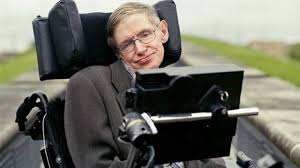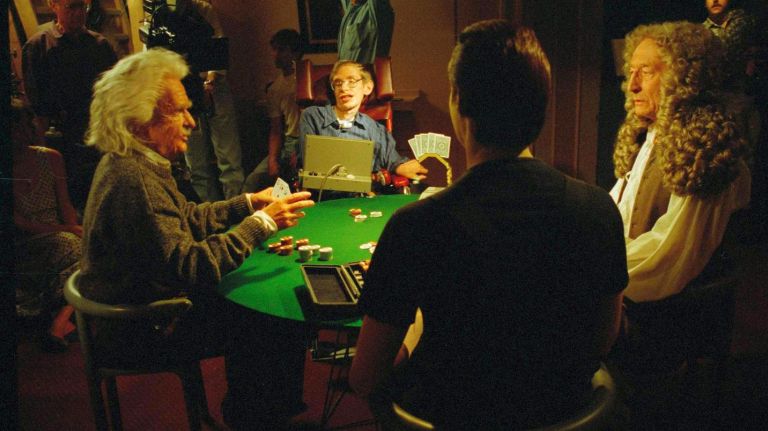Research - Stephen Hawking Dies At Age 76
Theoretical physicist Stephen Hawking died in his home in Cambridge, UK at age 76. He inspired millions by overcoming his severe disability while his research deepened humankind's understanding of our universe.

"We are deeply saddened that our beloved father passed away today," Hawking's children said in a statement. "He was a great scientist and an extraordinary man whose work and legacy will live on for many years. His courage and persistence with his brilliance and humour inspired people across the world.
"He once said: 'It would not be much of a universe if it wasn't home to the people you love.' We will miss him for ever," they wrote.
Stephen Hawking is beloved for his genius, his wicked sense of humor, and his embrace of pop culture to advance his own personal brand and the popularity of science education. He or his likeness appeared on "The Simpsons", "The Big Band Theory", and "Star Trek: The Next Generation" (in which he giddily beat Data, Albert Einstein, and Sir Isaac Newton in a poker game). 
He was portrayed by Eddie Redmayne in the 2014 film "The Theory of Everything" and by Benedict Cumberbatch in a BBC feature-length drama a decade earlier.
A brilliant but quirky student, in 1963 he was diagnosed with a rare early-onset slow-progressing form of amyotrophic lateral sclerosis (ALS) - also known as motor neurone disease or Lou Gehrig's disease - and given two years to live. Instead of dying, he continued his studies and research for another 55 years, walking on crutches for as long as he could before using a motorized wheelchair with which he would playfully run over the shoes of is students and fellow faculty at Oxford and Cambridge, and attend dances. As the disease and complications left him unable to speak, in 1986 he began using the first version of his celebrated speech synthesizer which most people associate with his public image.
"Although there was a cloud hanging over my future, I found, to my surprise, that I was enjoying life in the present more than before. I began to make progress with my research," the professor once said. "My goal is simple. It is a complete understanding of the universe, why it is as it is and why it exists at all."
His 1970 breakthrough - that the universe sprang forth in a "big bang" from a lone singularity, a region of infinite curvature in spacetime - commenced a series of radical discoveries (and the occasional miss) that transformed theoretical physics. Hawking won the Albert Einstein Award, the Wolf Prize, the Copley Medal, and the Fundamental Physics Prize.
His 1988 book "A Brief History of Time" turned him into science's rock star. Despite being called "the greatest unread book in history" - meaning it was pretty heavy for most people to get through - it remained on the New York Times bestseller list for an unprecedented 237 weeks, selling 10 million copies. For those who couldn't finish it, there was the 1991 film "A Brief History of Time" which featured scientists explaining the concepts addressed in the book and Hawking's life, with a score by Philip Glass.







 Create PDF
Create PDF Print
Print Email to friend
Email to friend